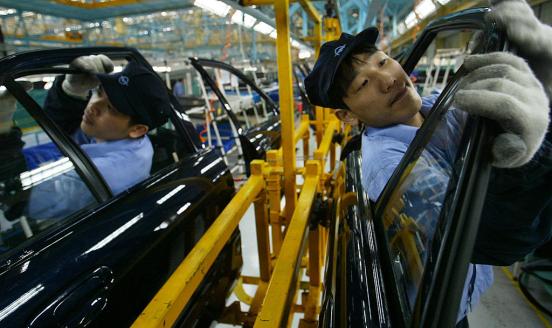How SMEs can meet the standards for trade
It is important for firms to meet the standards for trade but this can can prove difficult, especially for small and medium sized enterprises (SME).
Speakers
Marion Jansen
Chief Economist, International Trade Centre,
Arancha González Laya
Dean Paris School of International Affairs, Sciences Po
Denis Redonnet
Deputy Director-General, European Commission, DG Trade
summary
SEE BELOW FOR EVENT MATERIALS
The event aimed at identifying the main issues small and medium enterprises (SMEs) face to comply with standards and regulations required to do business internationally.
Arancha González and Marion Jansen, respectively Executive Director and Chief Economist of the International Trade Centre (ITC), presented the 2016 report `Meeting the standard for trade´, which contains some very interesting suggestions policy makers should follow to support the participation of SMEs in international trade.
The first consideration is that regulatory burdens hit small firms export values twice as hard as large firms, i.e. SMEs competitiveness is particularly influenced by standards and regulations.
In particular, the main issue SMEs face is about procedural obstacles. This means that the main problem for SMEs is not to meet a certain standard, but it is to demonstrate that the standard has been effectively met.
The report suggests a five points action plan for policy makers to facilitate SMEs meeting the international standards:
- Facilitate access to information and technology: it is extremely important that companies know exactly what to do in order to meet the standards for trade. At this purpose, public institutions can make available free tools that contain the necessary information companies need to know.
- Strengthen firm capacity to implement requirements: costs related to the respect of standards and regulations are often easy to identify, as they are tangible and immediate. While, measuring benefits is often harder. Therefore, strengthening firms’ awareness and capacity to deal with relevant decision-making processes might help.
- Be strategic when investing in technical infrastructure: it is of crucial importance the choice each government make about how to build the technical infrastructure related to conformity assessment. Since requirements differ a lot from sector to sector, decisions made by public authorities can be crucial in favouring the export of one sector rather than of another one.
- Strengthen governance at home: it is crucial to correctly identify the main responsibilities of the different institutions involved in each national infrastructure for standards and regulations, in order to facilitate SMEs in compiling with the requirements.
- Facilitate trade through international mechanisms: the role played by mutual recognition agreements is very important in order to avoid that exported goods have to be certified both in the exporting and importing countries, with different procedures and regulations.
Denis Redonnet, Director of "WTO, Legal Affairs and Trade in Goods" in the Directorate General for Trade in the European Commission, underlined how important is that public authorities properly know the main issues SMEs face in meeting the standards and regulations, in order to design helpful tools. At this purpose, a close collaboration between EU authorities and organizations as the ITC is very important.
Some important actions that have been undertaken at the EU level so far, regard the increasing availability of regulatory information tools (e.g. SPS and TBT agreements) to favour a transparent knowledge of procedures and to reduce the compliance costs related to standards and regulations.
Notes by Fabio Matera
VIDEO RECORDING
event materials
Presentationby Marion Jansen




